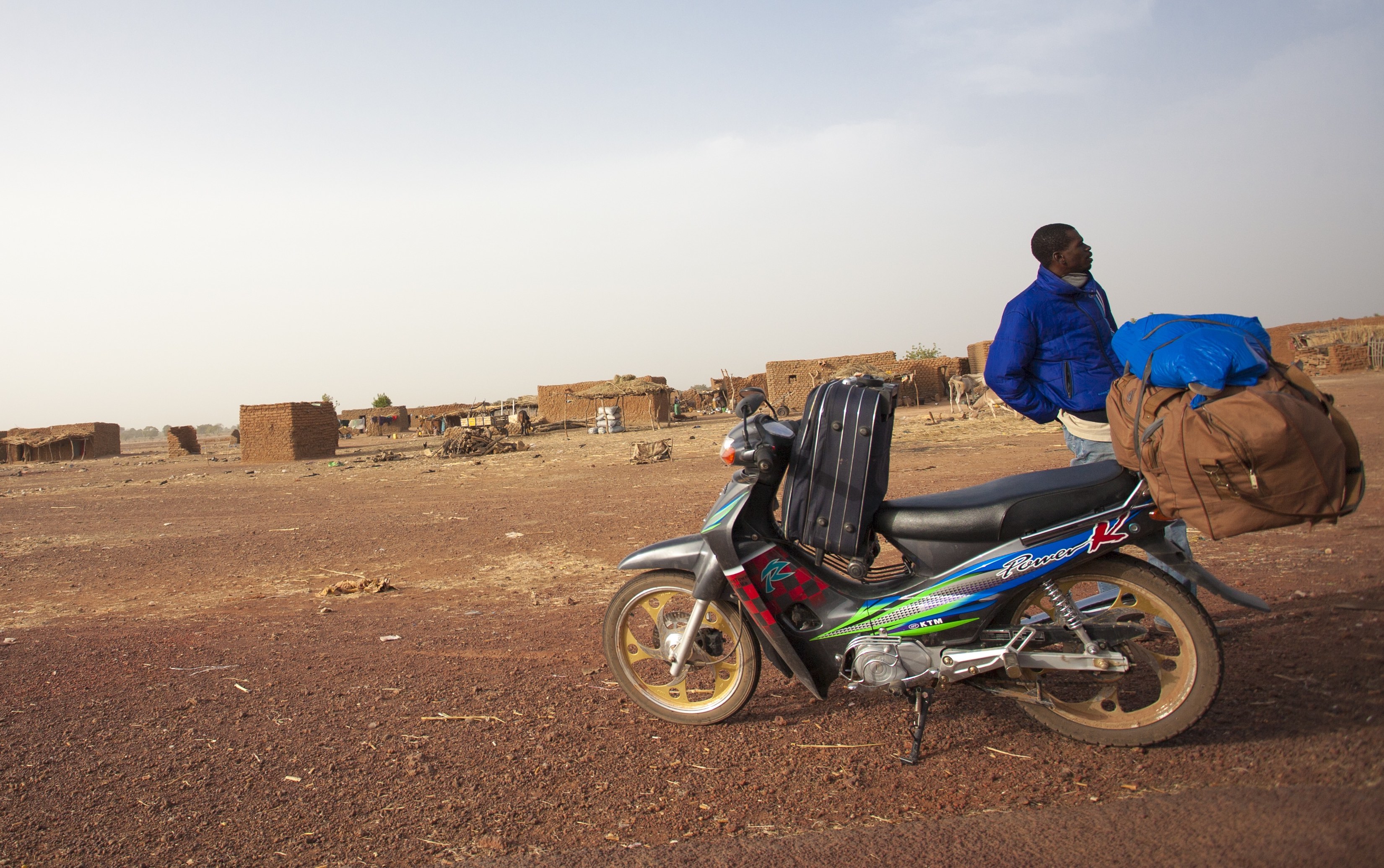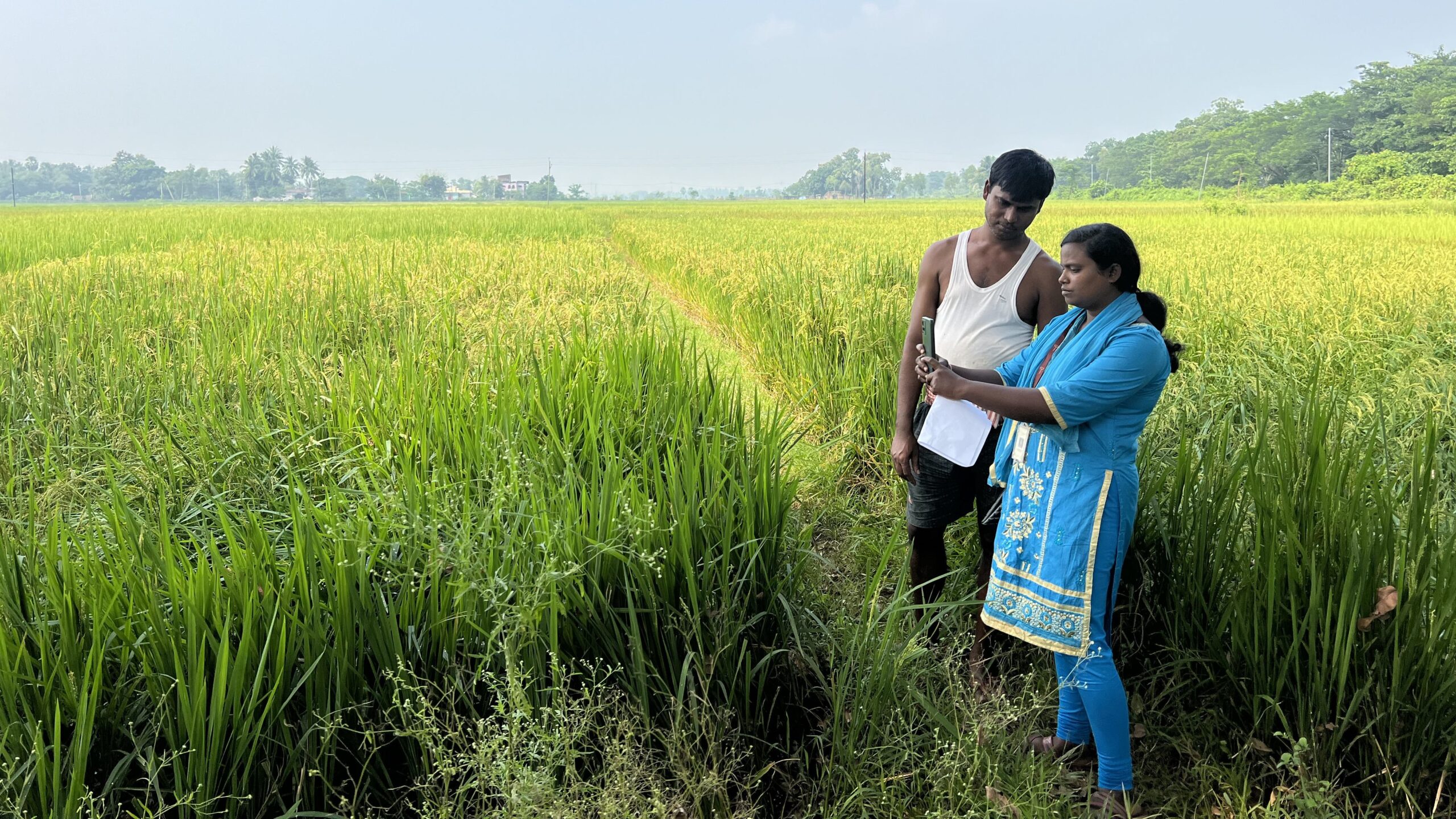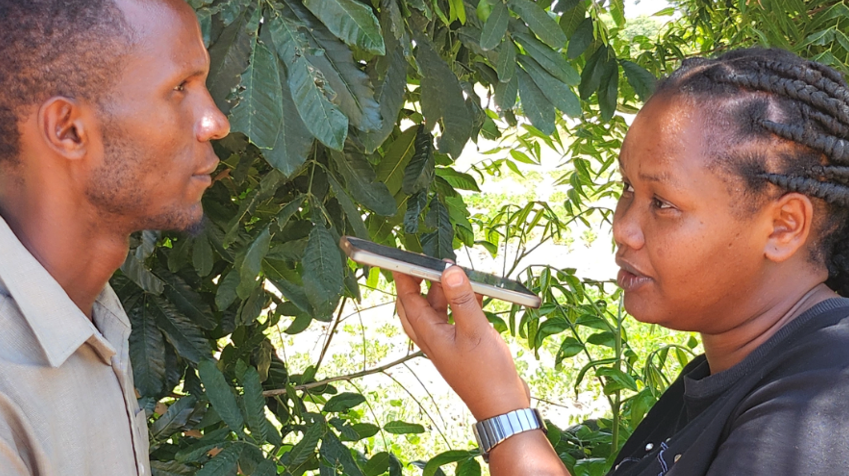Migration is a crucial element for economic development, as it offers workers in low- and middle-income countries ways to diversify and increase their income as well as ways to smooth their consumption over time. In addition, migration allows workers to send remittances, providing their households with the resources needed for investments. Yet social norms and income constraints also influence who migrates and why.
Our new paper in the American Journal of Agricultural Economics first assesses the prevailing gender patterns of migration in Mali, and then estimates impacts of a cash transfer program on these patterns to offer evidence on the relationship between constraints on income and migration. We find that the program had a positive effect on men’s rural-rural migration, and a negative effect on women’s rural-urban migration (respectively, the predominant forms of employment migration for each gender).
We focused on the randomized rollout of Mali’s national cash transfer program, “Filets Sociaux (Jigisémèjiri),” to investigate how relaxing income constraints affects the migration of men and women. Jigisémèjiri aims at reducing poverty and improving human capital accumulation mainly through unconditional cash transfers of about $20 per month, along with bimonthly voluntary behavior change communication activities on priority themes. To evaluate the impacts of Jigisémèjiri, we conducted a cluster randomized evaluation in the five southern regions of Mali and focused on the migration impact of the program between 2014 and 2016. During this time, households in 76 communes were randomly assigned to receive the cash transfers; another 20 communes were randomly assigned to start receiving the benefits after 2016.
Our analysis of prevailing gender patterns in migration showed that in Mali, men move primarily for employment reasons and the dominant form of migration is between rural areas. The migration of men resembles a normal good; the demand among workers for rural-rural migration tends to increase with their baseline income until reaching a specific threshold, then declines.
The migration of women followed a different pattern. We saw generally low rates of migration among women, and found that when they did migrate, women were moving to urban areas for employment and to rural areas for marriage. The literature suggests that social norms discourage women’s migration for employment reasons and that women tend to move to urban areas out of necessity, typically to raise funds for their trousseau, or wedding goods.
Consistent with migration being a normal good for men, we find that the cash transfer program increased rural-rural migration of men by 0.9 percentage points, or 100%. This effect was more concentrated among casual laborers. For women, by contrast, the cash transfer program reduced rural-urban migration by 0.2 percentage points, or 50%. This corroborates the notion that employment migration is more of a necessity for women, and considered an inferior good. Receiving cash transfers had no overall effect on the rural-rural migration of women, though women from less poor households were more likely to migrate to other rural areas as a result of the program.
These findings suggest cash transfers and migration have complex interactions related to gender norms. In Mali, women and men migrate for different reasons, and thus the effects of cash transfers differ by gender. Our findings indicate that greater attention to gender is needed in theoretical research on the relationship between income and migration, as conclusions may otherwise miss important nuances on how migration decisions differ for men and women. Such work is important to discern the circumstances under which internal migration may contribute to economic development. In settings where gender norms discourage women’s migration for employment, well designed programming to help women increase and diversify their incomes in their origin location may be important for achieving gender equality.
Melissa Hidrobo is a Senior Research Fellow with IFPRI’s Poverty, Health, and Nutrition Division (PHND). Valerie Mueller is an Associate Professor in the School of Politics and Global Studies at Arizona State University and an IFPRI Non-Resident Fellow. Shalini Roy is a PHND Senior Research Fellow. Michael Wang is a Program Coordinator in the Development Strategy and Governance Division (DSGD) at IFPRI.
This work was undertaken as part of, and funded by, the IFPRI-led CGIAR Research Program on Policies, Institutions, and Markets (PIM).







